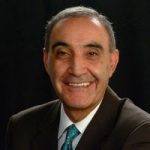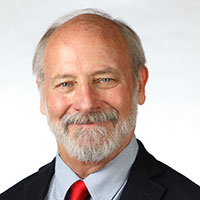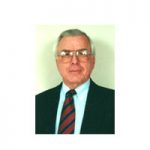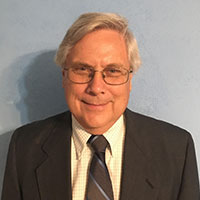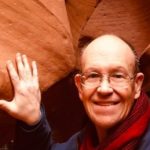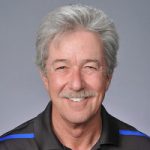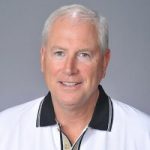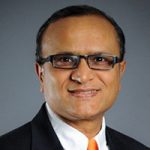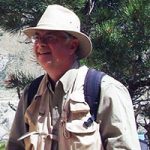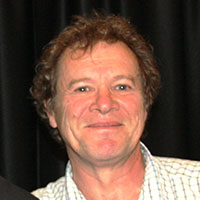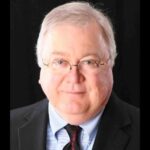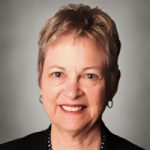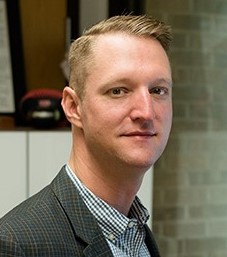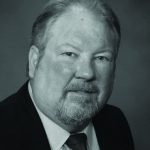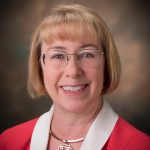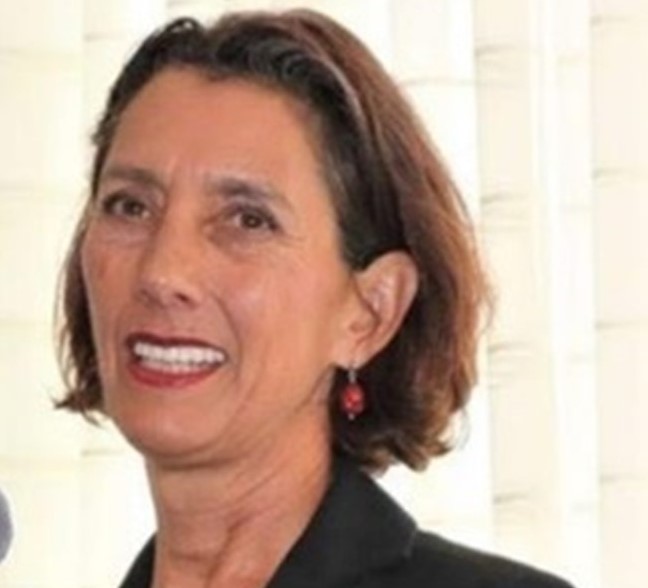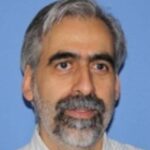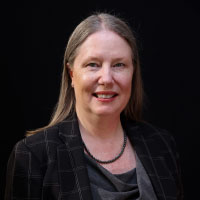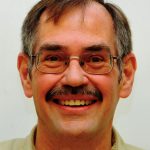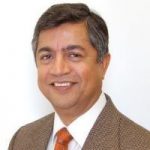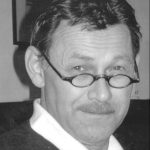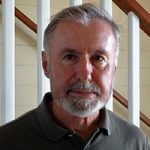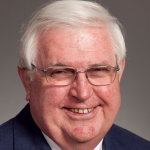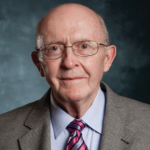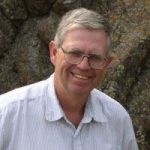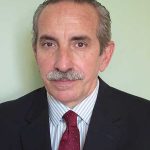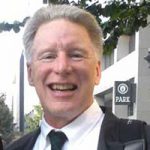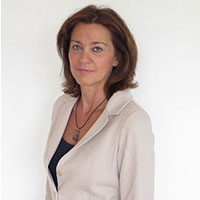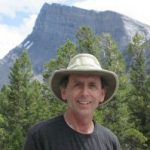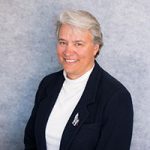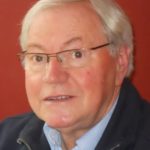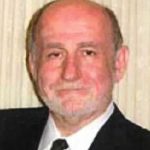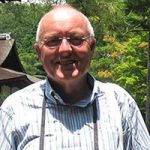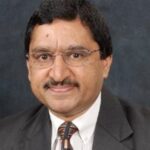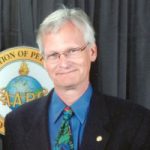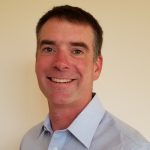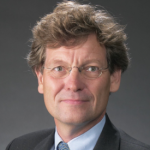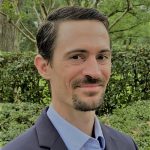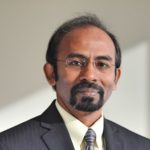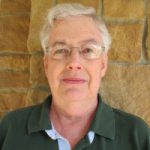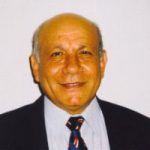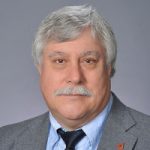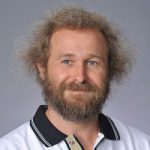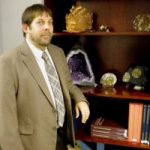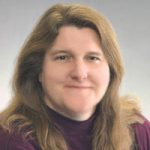Instructors
SCA seeks qualified training instructors to teach public and in-house courses. SCA offers marketing and enrollment tools in-line with industry standards, and a new training facility in our Houston office. Instructors have the opportunity to develop new training options, and to maintain technical skills through involvement in the provision of consulting services when not teaching courses.
Jill B. Almaguer, PE, MBA, PMP
Jill Almaguer is a certified Project Management Professional (PMP) and Registered Professional Engineer in Texas. She provides leadership and project management to coordinate suppliers to deliver contract requirements on time and on budget while meeting or exceeding customer expectations for quality results.
While working at HP for 20 years, she led a number of technical project teams implementing a broad range of projects from $10 million of medical electronics for the new Brooke Army Medical Center built in San Antonio to nationwide high-speed telecommunications network monitoring systems. She also led software application engineering team for implementation of semi-conductor design software and was director of development for an RFID asset tracking system. At HP, she taught quality process improvement methods to over 600 employees in the southern US as part of the Voice of the Customer project implementation.
Almaguer also provided project management and consulting services to clients such as BP Gulf of Mexico division for a major ERP conversion project. She has presented at numerous national and regional conferences for Society of Women Engineers and Project Management Institute. Jill has a BS in Bioengineering and an MBA and currently serves as Vice Chairman for the City of Bellaire Board of Adjustment and on the board of the Federation of Houston Professional Women, and Texas A&M University Biomedical Engineering Industry advisory board. She is current chairman of the Biomedical Engineering Society Houston Industry Chapter and past president of Association of IT Professionals in Houston.
Mrs. Almaguer teaches the following course:
Sia Agah
After early retirement in 1997, Sia moved to UMC/Ocean Energy to set up and manage their South Asia – Middle East Exploration Department and manage seven exploration blocks in Pakistan, Bangladesh, and Yemen. Sia has an extensive knowledge of the petroleum geology of the Middle East, South Asia, North Africa, and Offshore West Africa, and Brazil.
Sia Agah teaches the following courses:
Robert 'Bob' Barba
Bob has over 40 years of practical experience in the petroleum industry as an openhole wireline engineer, product development manager, petrophysicist, and completion optimization advisor focusing on integrated reservoir characterization studies, completion optimization studies, rock mechanics analysis, and horizontal well field development projects. He has extensive experience in both conventional and organic shale reservoirs.
Bob received the Regional Formation Evaluation Award from the Society of Petroleum Engineers Southwest North America region (Permian Basin) in May of 2018. He served as a Distinguished Lecturer 1995-1996 for the Society of Petroleum Engineers on the optimization of completion designs using petrophysical and reservoir engineering inputs. Bob is a recognized industry authority on refracturing rock mechanics and practices. He delivered the keynote address at a major refracturing conference for the SPE in Calgary January 2016 and has delivered over 100 presentations on the use of refracturing to enhance production in organic shale reservoirs. Bob served as an expert witness on log derived rock properties for BP through Kirkland and Ellis in the Macondo trial. He pioneered techniques to evaluate well performance using production data and routine well log data and applied the concept to over 5,000 wells to date. This significantly improved completion results in those fields.
Most recent projects involve the application of these techniques in Permian organic shale reservoirs where a solid correlation between modeled propped height and production results enables operators to forward model production results from shale reservoirs. Bob has analyzed over 3,000 organic shale wells in the Permian Basin and 400 wells in the Eagle Ford to date. He has also presented SPE 174994 at the 2015 SPE ATCE summarizing the analyses, SPE 195962 at the 2019 ATCE, and URTEC 2662 on organic shale frac and refrac optimization.
Mr. Barba teaches the following courses:
- “Best Practices” for New Well Fracs and Legacy Well Refracs
- Practical Interpretation of Open Hole Logs
- Predicting Organic Shale Well Performance
- Refrac Candidate Selection, Execution, and Performance Evaluation for Conventional and Unconventional Reservoirs
Kirk E. Boatright, PhD, PE
Dr. Boatright is President and CEO of Engineering Consultants International and Training. Formerly, Dr. Boatright was a drilling research engineer with Exxon, petroleum engineer with Amoco, roustabout with Cities Service (OXY), and Dean of the College of Arts and Sciences at Northeastern Oklahoma State University. He is also an engineering and training consultant for various major world oil and service companies. Over 13,000 people have participated in Dr. Boatright’s training courses.
Dr. Boatright has extensive experience in drilling, completion, reservoir engineering, production, fluid flow, and offshore operations. Kirk is a Registered Professional Engineer. He holds a B.S. in Mechanical Engineering (Petroleum) from Oklahoma State University, an M.S. in Mechanical Engineering from Oklahoma State University, and a Ph.D. in Engineering Science (Mechanical and Civil Engineering) from the University of Arkansas.
Dr. Boatright teaches the following course:
Jim Brenneke
James (Jim) Brenneke graduated from Augustana College with a BA in Geology and an MS in Geology from the University of Illinois. He joined Shell Oil Company (US) and worked for various Shell subsidiaries in research, international exploration and domestic exploration and production. He then joined Subsurface Consultants and Associates, LLC (SCA) as a consulting geoscientist. In addition to consulting, he assumed various management roles with SCA including Technical Manager, Vice President of Geology & Engineering and Treasurer. He then joined BP’s deepwater Gulf of Mexico (GoM) Production organization.
Jim has an extensive range of experience. He has worked in the onshore and offshore U.S. and in numerous foreign countries. He has contributed to numerous exploration discoveries, field extensions and development wells in his 40 years in the industry. He has published on deep sea carbonates and on assessing fault traps. Jim teaches our Applied Subsurface Geological Mapping course.
Mr. Brenneke teaches the following course:
Ruben Oscar Caligari
Rubén Caligari has more than 35 years’ experience in engineering and operations in E&P, and his last corporate position was Sr. Technical Advisor in unconventional resources in Petrobras Argentina E&P. During his career, he led multidisciplinary teams in project evaluations, field developing, and mature fields revitalizations in Argentina and several Latin American countries, and has been active in unconventional resources projects in Argentina as well. With an excellent record of developing talent, he designed and implemented a Knowledge Management Program for E&P with proved value added.
Retired from activities, he is currently professor of Petroleum Engineering both in undergraduate and graduate levels at Instituto Tecnologico de Buenos Aires. He teaches courses on energy at other universities in Argentina and participates in Industry and Government initiatives on Education on Energy. Ruben is author and director of an online course on Petroleum Engineering Basics presented by Instituto Argentino del Petroleo y del Gas.
In many years of professional activities within Latin America, he built a strong reputation and an extended network of contacts. He has been an active SPE member, serving as officer in different positions including President Patagonia Section, President Argentine Petroleum Section and Regional Director for LA&C, 2008- 2011. Mr. Caligari was named as a Distinguished Member of SPE in 2020.
Ruben has lectured in different events, presented several technical papers, and co-authored a book on developing shale resources.
Mr. Caligari teaches the following courses:
Eric D. Carlson, P.G.
Eric has been a petroleum geologist for 30 plus years. He worked with Marathon Oil Company, CDS Oil and Gas Group plc, and LCS Production Company, and has consulted for several Independents and PEMEX. He has an 82% drilling success record, including a 97% success rate during 2015 – 2020. Eric has worked in 12 offshore and onshore US Basins, including more than 5 years in the offshore Gulf of Mexico; and 4 basins in Latin America.
He is a subtle pay specialist who has helped reverse production declines in the Permian Basin, the Gulf of Mexico and onshore Mexico. He has generated integrated seismic/subsurface prospect interpretations and field studies in conventional fields. He has helped develop conventional reservoirs with infill drilling, waterfloods, tertiary recovery programs and horizontal drilling. Eric’s experience includes preparing reserve EUR’s & lease valuations in tite sands & unconventional shale plays (Permian Basin, Hardeman Basin, San Juan Basin, and Latin America). He has done unconventional exploration in Latin America and the US. Eric’s Wellsite Supervision experience includes more than 25 offshore logging jobs and 200 Permian Basin logging jobs (12 wireline companies, 15 mudlogging companies).
Additionally, he has performed more than 600 e-log evaluations in unconventional zones and several thousand pay counts in conventional reservoirs. Eric earned a BA/Honors in Geoscience (1982) from Cornell University. He is a licensed geologist in the State of Texas: License Number 5258. He is a member of the AAPG and other professional associations.
Mr. Carlson teaches the following course:
Gary Chapman
Mr. Chapman is experienced with play and basin studies, geochemical interpretation and drilling operations. He conducts exploration and development evaluations to define new business ventures and opportunities, supervises exploration and development projects and asset evaluations and ensures the achievement of company objectives by following projects from inception to completion. He has visited and conducted exploration activities in ~30 countries and emirates.
Mr. Chapman teaches the following course:
Alan Cherry
Alan Cherry is a Senior Geoscientist with over 34 years of industry experience. He has been associated with SCA since 2005 as one of the company’s principal geoscience consultants. His integrated skill set includes 2D and 3D geophysical interpretation, exploration play analysis and prospect generation, field development, reservoir engineering, formation evaluation, economic assessment, reserves evaluation, drilling, completion, and production operations. He is highly proficient in the use of multiple geologic and seismic interpretation tools.
His areas of expertise include Offshore GOM, Texas Gulf Coast, South Louisiana, East Texas, Permian, Uinta – Piceance, Williston, North Slope, Cook Inlet, and onshore California. Internationally he has worked projects in Ukraine, Russia, Indonesia, North Sea, Senegal, Nigeria, Gabon, Tanzania, Morocco, Somalia, Iran, Qatar, Thailand, South China Sea, Ecuador, Venezuela, Argentina, and Colombia.
Alan received his BS in Geology at State University of New York and did his graduate studies at the University of Houston and Wright State University. He is a Licensed Professional Geologist in Texas and a Certified Professional Geologist in Indiana.
Mr. Cherry teaches the following courses:
Rajan Chokshi, PhD
Dr. Rajan Chokshi works as an artificial lift and production ‘Optimizer’ for Accutant Solutions. He has over 36 years of experience working with a national oil company, research consortia, consulting and software firms, and a service company in various roles: engineer, software developer, project manager, trainer, consultant, and senior business leader.
Rajan has worked on global projects in multiphase flow, artificial lift, production optimization, data analysis with real-time production monitoring. He has co-authored over fifteen SPE papers and holds two US patents. He has served on the SPE training and global production award committees and several technical committees for the SPE ATCE and artificial lift conferences. He has co-chaired an SPE artificial lift workshop, an SPE forum on production issues in unconventional, and an SPE multiphase flow metering workshop. He was an SPE Distinguished Lecturer twice for the 2015-2016 and 2018-2019 years. Dr. Chokshi holds a Bachelor’s and Master’s in chemical engineering from the Gujarat University and IIT-Kanpur, India; and a Ph.D. in Petroleum Engineering from the University of Tulsa, USA.
Dr. Chokshi teaches the following courses:
- Advanced Artificial Lifting with ESP
- Advanced Sucker Rod Pumping
- Artificial Lift and Production Optimization Solutions
- Artificial Lift and Real-Time Optimization for Unconventional Assets
- Electrical Submersible Pump – Design and Optimization Using Nodal Analysis
- Gas-Lift & Deliquification Applications
- Gas Lift Design and Optimization Using NODAL Analysis
- Hydraulic Pumping
- Nodal Analysis in Self-Flowing and Artificial Lift Wells
- Nodal Analysis (Petroleum Experts IPM Software)
- Plunger Lift
Scott P. Cooper, MS
Scott was a Senior Member of the Technical Staff at Sandia National Laboratories, a Department of Energy Research Laboratory, working on projects related to outcrop and subsurface fracture studies with applications to reservoir characterization, production and CO2 sequestration. Since that time, he has had fun working in partnership with Dr. John Lorenz at FractureStudies LLC on naturally fractured reservoir issues around the world. Detailed descriptions of projects, published papers, short courses, and links to open-file reports and papers are available at www.fracturestudies.com.
Mr. Cooper teaches the following course:
Steve Cossey, PhD
Dr. Cossey is skilled in interpreting deepwater sequences and creating sequence stratigraphic and depositional models from core, well and seismic data. He has worked with over 100 companies that are exploring the deepwater globally and is fairly fluent in Spanish and French. Steve earned his Ph.D. in Geology from the University of South Carolina, Columbia.
Dr. Cossey teaches the following courses:
Dennis Dria, PhD
Dennis received a BS in Physics and Mathematics from Ashland University and a PhD in Petroleum Engineering from the University of Texas at Austin.
Dr. Dria teaches the following course:
Christine Ehlig-Economides, PhD
Dr. Christine Ehlig-Economides is currently professor of petroleum engineering at the University of Houston & the Hugh Roy and Lillian Cranz Cullen Distinguished University Chair. Christine worked for Schlumberger for 20 years in a truly global capacity. She has published more than 60 papers and has authored 2 patents, and has lectured or consulted in more than 30 countries.
Dr. Ehlig-Economides is internationally recognized for expertise in reservoir engineering, pressure transient analysis, integrated reservoir characterization, complex well design, and production enhancement. Her professional service includes: Executive Editor of the Society of Petroleum Engineers Formation Evaluation journal 1995-96; SPE Distinguished Lecturer 1997-98; and numerous posts as chairman or member of SPE committees and task forces. She was the Program Chairperson for the 2006 SPE Annual Technical Conference and Exhibition. In 2018, she was selected as an SPE Honorary Member. She is currently a member of the National Academy of Engineering, recipient of the John Franklin Carll Award, The Anthony F Lucas Medal, and the Lester C Uren Award, and on NRC Board on Energy and Environmental Systems (BEES).
Christine received a B.A. degree in Math-Science from Rice, an M.S. degree in Chemical Engineering from the University of Kansas, and a Ph.D. degree in Petroleum Engineering from Stanford University.
Dr. Ehlig-Economides teaches the following courses:
John T. Foster, PhD
Dr. Foster is Chief Technology Officer and Co-Founder at daytum, an Associate professor in the Hildebrand Department of Petroleum and Geosystems Engineering, the Department of Aerospace Engineering and Engineering Mechanics, and a core faculty member at the Oden Institute for Computational Engineering and Sciences at The University of Texas at Austin. Before joining UT-Austin, Dr. Foster was previously a faculty member in Mechanical Engineering at UTSA and was a Senior Member of the Technical Staff at Sandia National Laboratories where he worked for 7 years.
During his career in research he has been involved in many projects ranging from full scale projectile penetration field tests, to laboratory experiments using Kolsky bars, to modeling and simulation efforts using some of the world’s largest computers. Research interests are in experimental and computational mechanics and multi-scale modeling with applications to geomechanics, impact mechanics, fracture mechanics, and anomalous transport processes. Additionally, he has interest in fundamental theoretical advancement of the peridynamic theory of solid mechanics. His teaching interests are in all areas of theoretical and computational mechanics.
Dr. Foster received his BS and MS in Mechanical Engineering from Texas Tech University and his PhD in Aerospace Engineering from Purdue University. He is also a registered Professional Engineer in the State of Texas.
Dr. Foster teaches the following courses:
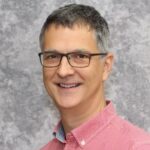
Lothar Friberg, PhD
Dr. Lothar Friberg is an independent consultant geoscientist with over 20 years of experience in exploration and subsurface assessments. Lothar’s wide-ranging international geological expertise reaches from basin-wide analysis to individual prospect generation in a variety of structural and sedimentary settings including salt basins. During his career, he worked for an IOC (Chevron) on its global portfolio, a large NOC (CNOOC) on the Americas and for a consultant (Robertson Research International) on multi-client studies and proprietary reports.
Lothar is a subject matter expert in petroleum system analysis with extensive basin modeling (PetroMod and Trinity) and geochemistry experience. In this capacity, he was a leading contributor in developing exploration concepts which resulted in 3 new country entries for Chevron (Iraq, Liberia, Sierra Leone).
Dr. Friberg teaches the following course:
James Granath, PhD
Dr. James W. Granath is a consulting structural geologist based in Denver, Colorado, who has worked in academia as well as minerals and petroleum exploration. Since 1976 he has taught at SUNY Stony Brook and spent 18 years in Conoco in research, international exploration, and new ventures. In 1999 he opened a consulting practice focused on structural geology and tectonics as applied to exploration problems, interrupted only by brief periods with Forest Oil and Midland Valley Exploration in Denver. He is a member of AAPG, AGU, GSA, and RMAG, and a certified petroleum geologist. He is the author of numerous research papers and co-edited several multi-author compendia.
His expertise lies in seismic interpretation and integration with structural analysis, fracture analysis, regional synthesis, and prospect and play evaluation. Current research interests include intraplate block faulted terrains, both extensional and compressional, regional tectonics of Africa, and the Kurdistan thrust belt. He holds his PhD from Monash University in Australia, and a BS and MS from of University of Illinois at Champaign-Urbana. Jim is currently on the Graduate Faculty at the University of Alabama, Tuscaloosa.
Dr. Granath teaches the following course:
Laurie Green, MSc, PG
Principles of Mapping with Petrel© was designed by SCA Senior Geologist and Training Instructor Laurie Green. Laurie has extensive international and domestic experience as a geophysical interpreter, geomodeler and project manager in conventional and unconventional assets for both E&P and service companies. She has broad expertise in computer-based mapping and modeling systems as an interpreter, programmer and technical trainer. Laurie has performed integrated field studies for global clients using different software systems and understands how computer-generated maps can be used and mis-used in real-world projects.
Laurie received her BS in Geological Sciences from Cornell University and her MSc from the University of California at Santa Cruz. She is a registered Professional Geoscientist in the state of Texas.
Mrs. Green teaches the following course:
Ursula Hammes, PhD
Dr. Ursula Hammes is currently Adjunct Professor at the Department of Geological Sciences, Texas A&M University and President of Hammes Energy & Consultants teaching and assessing various shale oil/gas systems. Dr. Hammes has 25+ years of experience in the oil and gas industry and academia in Europe and USA in positions ranging from exploration, development, research, and management. She has provided advanced consulting in shale-gas/oil systems and has taught industry short courses and in-house training courses for oil companies and universities.
Ursula obtained her Diploma at the University of Erlangen, Germany, and her Ph.D. at the University of Colorado at Boulder. Her graduate studies specialized in carbonate depositional environments, sequence stratigraphy, carbonate diagenesis, and rock-water interactions. Her background is diverse ranging from exploration, exploitation and business development for various oil/gas companies, conducting research as Research Scientist and Principal Investigator for the State of Texas Advanced Resource Recovery project and leading research and advising students at the University of Potsdam, Germany, Texas A&M University, and Bureau of Economic Geology at the University of Texas at Austin.
Dr. Hammes is past president of the Energy and Minerals Division (EMD) of AAPG (American Association of Petroleum Geologists), served as president of the Gulf Coast Section of SEPM (GCSSEPM), serves as senior associate editor for the AAPG Bulletin, and has been chair and moderator of many conventions and sessions. She is a world-known expert in assessing shale oil/gas systems from basin to nanoscale and sequence stratigraphy and reservoir characterization of carbonates and siliciclastics. She teaches core workshops and short courses in shale reservoir analyses and carbonate sequence stratigraphy, reservoir characterization, and sedimentology.
Expertise: Expert in mudrock/shale analyses from basin to nanoscale Sequence stratigraphy of carbonates and siliciclastics Teach core workshops and short courses in mudrock analyses and carbonate sequence stratigraphy and sedimentology.
Dr. Hammes teaches the following courses:
Dimitrios Hatzignatiou, PhD
Dimitrios G. Hatzignatiou is Professor in Petroleum Engineering at University of Houston. He holds a PhD degree in petroleum engineering from the University of Tulsa, and has over 30 years of combined academic and industry experience having taught at four universities, worked in various technical and management positions with a major service company, and consulted with the oil & gas and energy industries.
He joined the Petroleum Engineering faculty at University of Houston in 2016 after serving for twelve years as Chief Technical Director and Center of Oil Recovery (COREC) Professor in Norway. He has developed and managed several applied and research projects related to Carbon Capture Utilization and Storage (CCUS) and Carbon Capture and Storage (CCS) both in Europe and USA. He was a European Association of Engineers and Geoscientists (EAGE) CCS lecturer, and served as chairman of the 2015 EAGE International Workshop on CCS. He was a board member of the European Network of Excellence on the Geological Storage of CO2 (CO2GeoNet), and Norway representative on the European Network for Research in Geo-Energy (ENeRG).
Dr. Hatzignatiou has organized and served on several SPE Technical Committees, is an Associate Editor of the SPE Reservoir Engineering journals, and is serving as reviewer in numerous scientific journals. He is a Chartered Engineer (CEng) and a European Engineer (EURING).
Dr. Hatzignatiou teaches the following course:
Susan Howes, PE, PHR
Susan Howes joined SCA in August 2016 as Vice President of Engineering. In 1982, Susan began her career with Anadarko as an Engineer in Denver, Colorado. Through the years she held a variety of engineering positions of increasing responsibility. In 2007, she joined Chevron as Horizons Program Manager and afterwards moved into their Reservoir Management function providing functional leadership that resulted in improved production and reserve trends.
Susan has coauthored several papers and articles on the topics of uncertainty management, risk management, and talent management for SPE conferences and publications. She is chair of the SPE Soft Skills Committee, previously served as SPE Regional Director for Gulf Coast North America, is a recipient of the SPE DeGolyer Distinguished Service Medal and is an SPE Distinguished Member. In 2018, she was selected as an SPE Honorary Member in 2018. Howes holds a BS degree in Petroleum Engineering from the University of Texas.
As the Vice President of Engineering for SCA, Susan will be responsible for maintaining the highest technical quality standards for SCA’s recruitment, consultancy and training services. Additionally, she will participate in the direction, administration, and coordination of SCA’s operations, manage technical projects, and serve as the company’s primary liaison to the engineering community through her continued involvement in the SPE and other organizations.
Mrs. Howes teaches the following courses:
Jerry Jensen, PhD
Dr. Jerry Jensen is a part-time research engineer at the Bureau of Economic Geology, University of Texas at Austin. From 2007 to 2018, he held the Schulich Chair in Geostatistics at the University of Calgary’s Department of Chemical and Petroleum Engineering. Prior to 2007, Jerry held faculty positions at Texas A&M (1998-2007) and Heriot-Watt (1985-1997) Universities and worked as a field engineer for Services Techniques Schlumberger (1973-1977) and Gearhart Industries (1977-1983). Jensen has taught industry short courses on geomechanics, well log interpretation, geological statistics, reservoir characterization, and petrophysics.
Jensen received a BSc in electrical engineering from the U. of Birmingham (UK) in 1973 and a PhD degree in petroleum engineering from the U. of Texas at Austin in 1986. He is author or co-author of over 100 publications, including the books “Statistics for Petroleum Engineers and Geoscientists” (2000, Elsevier) and “Applied Reservoir Engineering and Characterization (2014, Gulf). He has research and teaching interests in inter-well connectivity, petrophysical analysis of unconventional reservoirs, and strategic sampling for reservoir analysis and modeling. Jerry was an SPE distinguished lecturer in 2011-2012 on the topic of inter-well connectivity.
Dr. Jensen teaches the following course:
Peter B. Jones, PhD
Peter Jones obtained his Doctor of Science degree in Geology and Geophysics from Colorado School of Mines, U. S. A., with a thesis in the southern Canadian Rockies. Since then he worked on projects and field studies in the Americas, Arctic Alaska and Canada, Africa, Europe Asia and Southeast Asia as an oil company geologist, academic, and international consultant. He was co-author of the world’s first commercially available software for constructing balanced cross-sections.
In 1997 he was awarded the Douglas Medal, highest scientific award of the Canadian Society of Petroleum Geologists, for “…contributions to the understanding of fold and thrust belts in general, in particular the Canadian Rocky Mountains.” He was elected to the Russian Academy of Natural Sciences in 1998 for his contributions to the structural geology of the Soviet Union. He has published some 40 papers on the structural geology of many countries in journals ranging from Nature to Izvestia of the Russian Academy of Natural Sciences. He is best known for his demonstration that the “Triangle Zone” at the east edge of the Canadian Cordillera was not a local anomaly but the “type section” for the frontal margins of several worldwide orogenies. Since 1978 he had been running field trips for geologist and geophysicists through the foothills and Rocky Mountains of Alberta and British Columbia, illustrating trips and courses with his own aerial photography.
Mr. Jones teaches the following course:
Shah Kabir
Shah Kabir is an adjunct faculty member at the U. of Houston and is the proprietor of CS Kabir Consulting. He has 40 years’ experience in the industry, having worked for Hess, Chevron, Schlumberger, Arco, and Dome petroleum. He has published over 130 papers and has received Honorary Membership of SPE and AIME (2016) and SPE Reservoir Description & Dynamics Award (2010), among others.
He has served SPE in many capacities including in the editorial board of three journals, books committee, and co-chairing several Forum series meetings. Besides teaching a plethora of in-house courses in his career, Kabir has also offered courses for SPE and guest lectured at Stanford, Texas A&M, U. of Southern California, and U. of Houston since 2004. His expertise includes: 1. Transient pressure- and -rate testing; 2. Wellbore fluid- and heat-flow modeling and 3. Multiple aspects of reservoir engineering.
Mr. Kabir teaches the following course:
John Keasberry
John Keasberry has over 40 years of experience as a geoscientist and training consultant for national, major, and independent oil and gas companies around the world.
He has developed and taught both lecture and field courses in Geology and other subsurface disciplines in major universities as well as international corporations. He specializes in exploration strategies, seismic interpretation, asset evaluation, and data management, analysis and interpretation.
Mr. Keasberry has managed projects and evaluated opportunities in the UK, the Netherlands, Norway and the North Sea, Ecuador, North America, and Africa. A citizen of the Netherlands, he is a graduate of the University of Leiden, and holds a master’s degree in both Geology and Geophysics.
He is a member of the Royal Geological and Mining Society of the Netherlands, the Petroleum Exploration Society of Great Britain, the Petroleum Geological Society, and the Geological Society of Leiden.
John Keasberry teaches the following course:
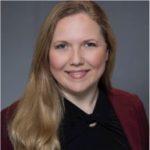
Lacie Knight, PG
Lacie began her career with Southwestern Energy as the first Operations Geologist hired for the Fayetteville Shale and has since held multiple technical, management, and advisory roles. She is a licensed Professional Geologist and currently works as an independent consultant with BHL Consulting, specializing in Geologic Operations. Lacie has geosteered over 1,200 wells in a variety of onshore US basins. Her technical experience includes regional basin analysis, asset appraisal, and many interdisciplinary projects focused on drilling, completions, and reservoir studies. She earned her undergraduate degree in Geology from Arkansas Tech University and a Masters in Geology from the University of Arkansas, where she currently serves on the External Advisory Board to the Department of Geosciences. Lacie’s passion lies in the integration of operational insights with technical analysis to ensure efficient, optimal development of fields within multidisciplinary teams.
Mrs. Knight teaches the following course:
William N. Krebs, PhD
William N. Krebs graduated with a B.S. in Geology from the University of California at Los Angeles and received his Ph.D. in Geology from the University of California at Davis. He is currently a geoscience consultant who specializes in the use of biostratigraphic data for well and regional correlations, paleoenvironmental analysis, depositional and basin modeling, and for sequence stratigraphy and chronostratigraphy. He has over 30 years of experience in the petroleum industry as a technical worker, manager, mentor, and instructor for Amoco Production Co., the Energy and Geoscience Institute (EGI) of the University of Utah, and for Petronas Carigali (Kuala Lumpur, Malaysia). He has field work experience in North and South America, Africa, and Asia, and has led field trips and taught seminars in the US and Egypt. He has also written and published numerous technical papers on the application of microfossils to stratigraphic research.
Dr. Krebs teaches the following course:
Larry W. Lake, PhD
Dr. Larry W. Lake is a professor in the Department of Petroleum and Geosystems Engineering at The University of Texas at Austin where he holds the Shahid and Sharon Ullah Chair. He holds B.S.E and Ph.D. degrees in Chemical Engineering from Arizona State University and Rice University, respectively. Dr. Lake is the author or co-author of more than 100 technical papers, four textbooks and the editor of three bound volumes. He has served on the Board of Directors for the Society of Petroleum Engineers (SPE), won the 1996 Anthony F. Lucas Gold Medal of the AIME, the Degoyer Distinguished Service Award in 2002, and has been a member of the National Academy of Engineers since 1997. He won the SPE/DOE IOR Pioneer Award in 2000.
Dr. Lake teaches the following course:
W. John Lee, PhD
John Lee is Rob L. Adams Professor in Petroleum Engineering at Texas A&M University. John holds BS, MS and PhD degrees in chemical engineering from the Georgia Institute of Technology. He worked for ExxonMobil early in his career and specialized in integrated reservoir studies. He later joined the Petroleum Engineering faculty at Texas A&M, and became Regents Professor of Petroleum Engineering. While at A&M, he also served as a consultant with S.A. Holditch & Associates, where he specialized in reservoir engineering aspects of unconventional gas resources. He joined the University of Houston faculty in September 2011 and held the Cullen Distinguished University Chair until September 2015. He served as an Academic Engineering Fellow with the U.S. Securities & Exchange Commission (SEC) in Washington during 2007-8, and was a principal architect of the modernized SEC rules for reporting oil and gas reserves.
John is the author of four textbooks published by SPE and has received numerous awards from SPE, including the Lucas Medal (the society’s top technical award), the DeGolyer Distinguished Service Medal (the society’s top service award) and Honorary Membership (the highest recognition awarded society members). He is a member of the U.S. National Academy of Engineering and the Russian Academy of Natural Sciences.
Dr. Lee teaches the following courses:
William Little, PhD
William Little, PhD comes to SCA with 14 years’ experience teaching university courses in sedimentary geology and geological mapping and 16 years conducting geological mapping. He received a Doctorate in geology from the University of Colorado-Boulder and M.S. and B.S. degrees in geology from Brigham Young University. Dr. Little has held various roles in academia, currently as a professor at Brigham Young University – Idaho and previously at the University of Missouri – Rolla, Drury University, Moberly Area Community College, and Front Range Community College. At BYU – Idaho, he teaches sedimentology and stratigraphy with heavy emphases on recognition of ancient depositional systems and sequence stratigraphy, along with geomorphology and is the field camp director. He previously taught graduate courses in advanced geological mapping at UM – Rolla and worked as a mapping geologist for the Missouri Geological Survey.
Dr. Little teaches the following course:
Oscar Lopez-Gamundi, PhD
Dr. Oscar Lopez-Gamundi has close to 30 years of worldwide experience in pathfinding, play trend definition, prospect generation and execution. He has extensive expertise in onshore and offshore exploration in areas including Latin America, Gulf of Mexico, and Africa. He served on a part-time basis as an Assistant Professor in Sedimentology at the University of Buenos Aires where he had previously received both his Bachelor’s degree equivalent and Ph.D. in Geology. The bulk of his career was then spent holding various high-level positions with Texaco, Chevron, and Hess. He has instructed various industry courses, given convention presentations, and has more than 100 publications on sedimentology, basin analysis, and oil and gas exploration. He is also fluent in English, Spanish, and Portuguese.
Drawing from his wide-ranging experience in both the industry and academia, Dr. Lopez-Gamundi instructs a five-day course for SCA entitled “Carbonate Sedimentology and Sequence Stratigraphy”. This course covers the basic concepts of carbonate sedimentology and sequence stratigraphy with emphasis on their practical applications for oil and gas exploration, appraisal, and production. All concepts are illustrated with examples of outcrop well-log, core, and seismic data. The final objective is to provide course participants with the tools and methodologies to effectively predict the pressure and quality of reservoir, source rock and seal.
Dr. Lopez-Gamundi teaches the following courses:
John C. Lorenz, PhD
John C. Lorenz, PhD earned an undergraduate BA, with a double major in geology and in anthropology from Oberlin College in 1972. After serving in the Peace Corps, Morocco, he earned on his MSc, thesis on a Moroccan Triassic rift basin, at the University of South Carolina (1975), and PhD, studying the Nubian Sandstone in Libya and Cretaceous strata in Montana, at Princeton University (1981). Lorenz has worked for the US Geological Survey in Louisiana and New Mexico, and for Sandia National Laboratories where he was the geologist for the tight-gas Multiwell Experiment in the Piceance basin. Lorenz has been a consultant, specializing in fractured reservoir characterization and effects, since 2007.
Lorenz served as the Elected Editor (2001-2004) and President (2009-2010) of the American Association of Petroleum Geologists. As president he supported the advancement of the geosciences and their applications to hydrocarbon-related problems. His published papers on natural and induced fractures in reservoirs range geographically from the Lisburne Limestone in Alaska to the Spraberry Formation in Texas. These papers and presentations have been awarded the AAPG Levorsen (twice) and Jules Braunstein awards.
He has worked closely with the oil and gas industry on problems involving reservoir dimensions and in situ permeability, gaining extensive hands-on experience with core analysis and fieldwork. He has led field trips, presented core workshops, and taught short courses for the industry-oriented geological community in numerous places around the world.
Dr. Lorenz teaches the following course:
Catalina Luneberg, PhD
Catalina Luneburg is the owner and director of TerraEx Group LLC, a customized consulting and training service for the energy industry focusing on Structural Geology/Tectonics.
Previously, Luneburg was a Product Manager and Senior Scientist at Landmark/Halliburton developing geomodelling workflows as well as managing and designing software applications such as LithoTect and DecisionSpace. She has also held positions with GeoLogic Systems and Midland Valley, focusing on structural restorations and modeling. Preceding her industry career, she spent many years in academic teaching and research.
As a Structural Geologist Luneburg is a recognized expert in the validation of a variety of basins and petroleum systems worldwide, applying best practices and innovative structural modeling and restoration techniques. Her areas of expertise include geologic interpretation and validation, Structural Geology modeling, cross section balancing and 2D/3D time-step restorations as well as HC reserve estimates, 3D framework building and fracture prediction analyses.
Luneburg holds a doctorate in Natural Sciences from the Swiss Federal Institute of Technology in Zurich, Switzerland, and a master’s degree and bachelor’s degree in Geology/Paleontology from the Ludwig-Maximilian University in Munich, Germany.
She has published extensively in her field including several books, and has authored a number of patents. In addition, she has convened conferences and led numerous field trips and workshops. She is fluent in English, German, and Spanish, and proficient in French and Italian.
The course Luneburg teaches follow a unique modular structure where clients can combine and customize topics into a course of desired content.
Dr. Luneburg teaches the following course:
D. Nathan Meehan, PhD, PE
Dr. D. Nathan Meehan is President of CMG Petroleum Consulting, an energy advisory firm founded in 2001 and Senior Technology Advisor for Petro.ai, a leading oilfield data analytics firm where he advises on energy transition issues. He was formerly President of Gaffney, Cline & Associates, and a senior executive at Baker Hughes, Occidental Petroleum and Union Pacific Resources. He served as the 2016 President of the Society of Petroleum Engineers.
Meehan holds a BSc in Physics from the Georgia Institute of Technology, an MSc in Petroleum Engineering from the University of Oklahoma, and a PhD in Petroleum Engineering from Stanford University. He is an SPE Honorary Member and the recipient of the World Oil Lifetime Achievement Award and Petroleum Economist magazine’s Legacy Award. He served as Chairman of the Board of the CMG Reservoir Simulation Foundation and twice as a Director of the Computer Modelling Group, Ltd., as Director of Vanyoganeft Oil Company, as Director of Pinnacle Technologies, Inc., as a Director of the Society of Petroleum Engineers and as a Director of JOA Oil & Gas BV. He serves on the boards of the University of Oklahoma Board of Visitors for the Mewbourne College of Earth and Energy, the University of Texas and Saint Francis University petroleum engineering departments and the Georgia Institute of Technology College of Sciences.
He is an appointed member of the Interstate Oil & Gas Compact Commission, has served on the National Petroleum Council and is a widely published author. Dr. Meehan is a licensed professional engineer in four states. Meehan was recently elected to become a member of the National Academy of Engineering (NAE).
Dr. Meehan teaches the following course:
Robert Merrill, PhD
Robert Merrill, Ph.D. has over thirty years of industry experience. He has worked for American Stratigraphic Company, Cities Service Company, Occidental, Unocal and Samson in various domestic and international exploration and staff positions. In these positions he has explored a variety of basins, including extensional basins, fold and thrust belts and foreland basins both from a regional context as well as prospect generation. Geographic areas outside North America in which he has exploration as well as acquisition experience include Argentina, Brazil, Colombia, Thailand, Malaysia, Indonesia, Russia, Kazakhstan, Azerbaijan, the North Sea, and Central Europe. He has experience generating and evaluating prospects in both conventional and unconventional clastic reservoirs, including fractured reservoirs and tight gas sands as well as carbonates. In his positions he participated or was responsible for implementing probabilistic methods to prospect evaluation and reserves estimation and using this information for comprehensive portfolio management.
Robert has been involved with evaluating and optimizing the geological and geophysical workflow to reduce cycle time from the origination of an idea to prospect drilling. He has taught in-house courses on a range of subjects including structural geology, basin analysis and plate tectonics and geology for engineers. He has served as Secretary and President of the American Institute of Professional Geologists, is active in the American Association of Petroleum Geologists where he co-edited the Giant Fields of the Decade 1990 – 2000 and edited Source and Migration Processes and Techniques for Evaluation and was the Technical Program Coordinator for the 2006 AAPG Annual Meeting in Houston. He is currently a Director of the Houston Geological Society. He has also published papers in subjects as diverse as risk analysis, deep, overpressured gas in the Green River Basin and origin and migration of oils, Wyoming/Utah/Idaho Overthrust belt. He is a Fellow of the Geological Society of America, a Chartered Geologist with the Geological Society and has served on committees for the American Geological Institute. Dr. Merrill has his Ph.D. and M.S. from Arizona State University and his B.A. in Geology from Colby College.
Dr. Merrill teaches the following course:
Hal F. Miller
Hal F. Miller, President of Subsurface Consultants & Associates, LLC, is responsible for the administration and coordination of SCA’s global operations and for guiding the company’s strategic direction. Prior to joining SCA in 2004 as Vice President of Operations, Hal spent a total of 26 years working at Conoco and ConocoPhillips. During that time he held a variety of positions including operations, exploration, and human resource management at the business unit level, and corporate level skills management for the geoscience and reservoir engineering disciplines. Hal received his undergraduate degree in 1974 from Williams College in Massachusetts and his M.S. in Geology from the University of Colorado in 1979.
Hal teaches the following course:
Jennifer L. Miskimins, PhD
Dr. Miskimins serves as the Department Head of the Petroleum Engineering Department at the Colorado School of Mines and holds the F.H. Mick Merelli/Cimarex Energy Distinguished Department Head Chair. She is responsible for the departmental budget, undergraduate and graduate programs, and interactions with alumni and other departmental constituents including the Mines’ Foundation. She instructs various classes at both the undergraduate and graduate level in stimulation, completions, and geologic field session. Jennifer advises graduate students and conducts research in the areas of hydraulic fracturing, unconventional reservoirs, and stimulation techniques. She is the Director of the Fracturing, Acidizing, Stimulation Technology (FAST) Consortium and Director of the Center for Earth Materials, Mechanics, and Characterization (CEMMC).
Jennifer holds BS, MS, and PhD degrees in petroleum engineering and has over 25 years of experience in the petroleum industry. Between her BS and graduate degrees, she worked for Marathon Oil Company in a variety of locations as a production engineer and supervisor. Dr. Miskimins started teaching at CSM in 2002 and was full-time until 2013 when she returned to industry. From 2013-2016, she continued to hold a part-time appointment at CSM, advising research and graduate students, while working for Barree & Associates. In 2016, she returned full-time to the university.
Dr. Miskimins specializes in well completions, stimulation, hydraulic fracturing, and associated production issues. She is the founder and current Director of the Fracturing, Acidizing, Stimulation Technology (FAST) Consortium and also co-directs the Center for Earth Materials, Mechanics, and Characterization (CEMMC). Her research interest focus on the optimization of stimulation treatments and the importance of such on associated recovery efficiencies.
She is the Completions Technical Director on the SPE International Board of Directors. She was an SPE Distinguished Lecturer in 2010-2011 and 2013-2014 on hydraulic fracturing in unconventional reservoirs. Dr. Miskimins serves on a variety of conference organizing committees and as a technical editor for various journals. She is a registered Professional Engineer in the State of Colorado (License #36193).
Dr. Miskimins teaches the following course:
Siddharth Misra, PhD
Prof. Siddharth Misra is an Associate Professor in Harold Vance Department of Petroleum Engineering with a joint appointment in the Department of Geology and Geophysics at Texas A&M University. He is a researcher and educator in the field of subsurface monitoring for the exploration and production of subsurface earth resources. He authored two books: “Machine Learning for Subsurface Characterization” and “Electromagnetic Data Interpretation for Subsurface Characterization”.
His journey in oil and gas industry started with Halliburton in 2007. In 2018, Dr. Misra was recognized as the U.S. Department of Energy Early Career Awardee. For his technical contributions to geophysics and subsurface engineering, he has received several international awards, such as SEG J. Clarence Karcher Award, SPWLA Young Technical Professional Award, SPE Gulf Coast Formation Evaluation Award, and EAGE Arie Van Weelden Award. Dr. Misra holds a Bachelor of Technology in electrical engineering from the Indian Institute of Technology Bombay and a Ph.D. in petroleum and geosystems engineering from the University of Texas at Austin.
Dr. Misra teaches the following course:
Gerrit Nitters
Gerrit Nitters is a specialist in well stimulation operations with 40 years’ experience the oil industry. During his career in Shell he became Shell’s global well stimulation coordinator and Principal Technical Expert on well stimulation providing active advice from his Shell Houston and Shell Rijswijk offices. After his retirement from Shell in 2006 he founded the Nitters Petroleum Consultancy Int. B.V. Activities over the last ten years range from lecturing at IFP, WTG, TLN and PetroEdge Asia to detailed support (including on-site) on acid and fracturing treatments for a range of oil companies such as Maersk, RWE DEA, EoN Ruhrgas, GDF Suez, NAM, Aurelian Oil, CEP, VNG Norway, JKX and ExxonMobil. He is currently also involved in Geothermal Energy projects in the Netherlands through a liaison with IF Technology
Gerrit authored and co-authored many SPE papers on the subject of well stimulation. He was SPE’s Distinguished Lecturer on Well Stimulation in 2005. In addition he served as committee member and chaired a number of SPE conferences and forums on well stimulation. He is one of the contributors to the new SPE Monograph on Acidizing (issued in 2016). He also recently wrote technical guidelines for stimulation of geothermal wells in cooperation with IF Technology for a project of the Dutch Ministry of Economic Affairs.
Mr. Nitters teaches the following course:
William K. "Bill" Ott, PE
Bill is an independent, international petroleum consultant based in both Houston and Singapore. An SPE Distinguished Lecturer 2007 – 08, he has conducted technical petroleum industry courses worldwide and written numerous technical papers relating to well completion and workover operations, including co-authoring the popular World Oil Modern Sandface Completion Practices Handbook and World Oil Downhole Remediation for Mature Oil & Gas Fields. Mr. Ott has a B.S. in Chemical Engineering from the University of Missouri and is a registered professional engineer in Texas.
Mr. Ott teaches the following course:
Kevin Pickering, PhD
With more than 25 years of research experience, Kevin has undertaken research as a shipboard scientist in the Gulf of Mexico (Ocean Drilling Program Leg 96), and offshore Japan (Ocean Drilling Program Leg 131), together with on-land research in Arctic Norway, northern Russia, Newfoundland, Quebec, NE Scotland, southern Britain, SE France, Spanish Pyrenees, SE Spain, Tibet, Japan, Kyrghyzstan, Uzbekistan, California, and New Zealand.
Kevin’s research interests are many and varied, with more than 130 research papers, 5 authored / co-authored books and 5 edited books, that include the following topics: Earth surface processes (particularly all aspects of deep-marine sedimentology, stratigraphy and tectonics), surface processes on Venus, global environmental issues, stratigraphy, tectonics and sedimentation, sediment geochemistry and clay mineralogy, particularly relating to deep-marine environments.
Dr. Pickering teaches the following courses:
Srini Prasad
Srini Prasad is a Petroleum Reservoir Engineering Consultant with extensive Worldwide Upstream Oil & Gas Industry experience with Hess, BP and Oxy. His experience spans exploitation of multiple basins and reservoir/fluid types: Unconventional shale and conventional sandstone/chalk reservoirs; Light oil, heavy oil and gas reservoirs; Bakken, Deepwater Gulf of Mexico, Guyana, Angola, Malaysia, Kuwait, Alaska, Peru, California, Norway, Denmark, Russia, Canada, Libya; Various phases of an asset life cycle including exploration, appraisal, sanction, development, start-up, production, pipelining, recovery enhancement and divestiture.
Mr. Prasad is a business leader with technical focus. He has held a variety of technical, subsurface, commercial, asset and functional leadership positions over his career. He was most recently the Chief Reservoir Engineer at Hess.
He has received multiple awards for Technical and Business Innovation and mentoring colleagues. He holds two U.S. patents and has over 20 presentations & publications covering diverse topics.
Srini obtained his M.S in Chemical Engineering from the University of Houston and his B.Tech. in Chemical Engineering from the Indian Institute of Technology in Kanpur.
Mr. Prasad teaches the following courses:
Bradford E. Prather
Brad Prather graduated from the University of Kansas in 1979 with a BSc in geology. Following graduation he moved to the University of New Orleans to pursue a Master Degree in Earth Sciences, graduating in 1981. Prather then joined the Onshore Division of Shell Oil Company, New Orleans in 1981 as a summer intern and became a full time Exploration Geologist on January 1, 1982. He began his exploration career prospecting for oil and gas in the Smackover and Norphlet plays of onshore Mississippi, Alabama and Florida.
Over time he moved to the offshore starting in the US Atlantic margin, then to MAFLA (the offshore of Mississippi, Alabama and Florida), and shelf provinces of Louisiana and Texas, eventually he ended up in the deepwater and Gulf of Mexico when he served as Division Geologist. He left New Orleans in 1995 for a 5-year assignment in The Hague, The Netherlands focusing on global deepwater plays. This work eventually led to creation of Shell’s Turbidites Research Team (TRT) which he lead until 2008 from locations in Rijswijk, The Netherlands and Houston, Texas. He returned to exploration in the Americas in 2008 as a Geological Advisor and eventually became Regional Chief Exploration Geoscientist in 2009. Upon retirement from Shell in 2014 he joined the University of Kansas as an Adjunct Professor where he teaches courses focused on seismic stratigraphy, petroleum systems and sedimentology.
He is an Associate Editor for the AAPG Bulletin, serves on both the SEPM and AAPG Research committees, and is a referee for many scientific journals. He was a Shore-Based Scientist for IODP Leg 308, which cored the Brazos-Trinity Basin IV in the Gulf of Mexico. Prather currently is the Chairman-elect for Executive Committee of Geology Associates Advisory Board to the Department of Geology at the University of Kansas.
Prather is the recipient of Robert R. Berg Award for Outstanding Research (2009), Erasmus Haworth Most Distinguished Alumni Honors in Geology (2006), AAPG Distinguished Lecturer (2000-2001), Jules Braunstein Best Poster Award (2000), J. C. “CAM” Sproule Memorial Best Paper Awards (1993 and 1994) and W. A. Tarr Leadership Award (1979).
Mr. Prather teaches the following courses:
Lee A. Richards, PhD, PE
Lee A. Richards, PhD, PE is Lee A. Richards, PhD, PE is an accomplished petroleum engineer who has worked for companies such as Halliburton and BP America during his career. Most recently, he serves as Assistant Professor of Petroleum Engineering for Montana Tech and simultaneously consults as an engineer for clients. Lee has co-authored a variety of publications and given various professional technical presentations over the course of his career.
Lee received a BS in Chemical Engineering from Washington State University and a PhD in Chemical Engineering from Montana State University.
Dr. Richards teaches the following courses:
Leo Roodhart, PhD
Leo Roodhart’s career with the oil and gas industry spans some 35 years in the areas of Production Engineering, Production Optimisation and Water Management, Strategic Innovation, Scenario Planning, and New Business Development. He was distinguished lecturer for the SPE in 2008. He served on the board of directors of SPE from 2005-2008 and became President of the Society of Petroleum Engineers (SPE) in 2009. In addition he served as committee member or chairman of a number of SPE conferences workshops and forums on well stimulation and water management.
He worked as Senior Advisor Production Engineering for Shell International, performing audits and reviews of Shell assets worldwide. As global well stimulation expert, he designed and supervised fracturing treatments in Shell’s operating units across the globe, such as Canada, Venezuela, Germany, North Sea, China and the Middle East. He has written and presented numerous papers in the area of production optimization, hydraulic fracturing and acidizing, water management and was Distinguished Lecturer for the SPE. As Head Well Stimulation and Water management Research he was responsible for the development of Shell’s Fracturing and acidizing simulators.
His last position was head of Group GameChanger, Shell’s corporate strategic innovation program that identifies and sponsors the development of new breakthrough technologies in the context of the various technology futures for the oil industry. Leo retired from Shell in 2010, having joined the company in 1980 after acquiring a PhD in Mathematics and Physics.
Mr. Roodhart teaches the following course:
Jon R. Rotzien, PhD
Dr. Jon Rotzien is President of Basin Dynamics and Adjunct Professor at University of Houston. He specializes in reservoir presence and quality forecasting in conventional and unconventional drilling programs. Prior to his present posts, he served BP and other supermajor and independent operators in a variety of basins and petroleum reservoir technical training programs. As a business owner and scientist, Rotzien has participated in oil and gas exploratory to development drilling, mapping expeditions, technical competency training and consulting and has served as lead geologist in about one-third of those ventures. He is currently serving as Chair of the Houston Explorers Club. Rotzien received a Ph.D. in Geological Sciences from Stanford University and a B.A. degree in Geology from Colorado College.
Mr. Rotzien teaches the following course:
Robello Samuel, PhD
Dr. Robello Samuel has been a Chief Technical advisor and a senior Fellow, working with Halliburton since 1998. Dr. Samuel began his career working on rigs as a field and drilling engineer for nine years with the Oil and Natural Gas Corporation. Since then he has developed more than 30 years of experience in domestic and international oil/gas drilling operations.
He is the recipient of several awards including the Gulf Coast SPE Drilling Engineering Award, SPE International Drilling Engineering Award, SPE Distinguished Membership Award and the Distinguished Lecturer award from the Society of Petroleum Engineers. Dr. Samuel has taught on the faculty of various universities and holds an adjunct professor appointment (concurrently) for the past 18 years at the University of Houston and 5 years at the University of Southern California, LA.
Robello has published more than 215 technical papers, holds 72 US patents, and 95 worldwide patents. Dr. Samuel serves regularly as a keynote speaker at major conferences and corporate forums and is regarded as one of the world’s most influential contributors to advancement of research and practice in drilling engineering. Dr. Samuel’s unique blend of skills with broad experience as a field engineer, thinker, thought leader, innovator, researcher, educator and educationist has given him the ability to author thirteen drilling books.
He holds a BS degree in Mechanical Engineering as well as MS and PhD degrees in Petroleum Engineering from the University of Tulsa. Dr. Samuel also received the SPE/AIME Honorary Membership award in 2021.
Dr. Samuel teaches the following courses:
Ed Savage
Ed Savage has over 40 years experience in the evaluation of oil and gas properties, prospects and basins for economic and reserve potential, including the systematic and rigorous application of risk and uncertainty principles. Has worked as a logging engineer, petrophysicist, reservoir engineer and economist. Most of his career has been in the identification, evaluation and recommendation of investment opportunities to management for acquisitions, dispositions, trades, farm-ins or farm-outs, and for development.
Areas of special interests are the application of statistical techniques to reservoir engineering and economics analysis and the development of consistent evaluation techniques to ensure optimum selection of exploration and production acquisition and drilling opportunities. Special studies have included basin and trend analysis, competitor analysis, company-wide reserves standards and the techniques for measuring the effectiveness of capital employed in exploration and production. Mr. Savage has a B.S. in Mathematics and has done graduate work in Petroleum Engineering and Statistics.
Mr. Savage teaches the following course:
Selim Shaker, PhD
Selim S. Shaker is a Consultant for Geopressure Analysis Services Inc. (G.A.S) (www.geopressureanalysis.com). He received a B.Sc., M.Sc and Ph.D. in Geology from ASU, Egypt. He also received a diploma in Hydrogeology from Prague University (UNESCO).
With over 35 years in the oil industry, he started his career in Egypt as a well-site, stratigrapher and structural geologist. During his 30 years of U.S. domestic service his main function as Exploration Geologist was prospects generation in offshore Gulf of Mexico (Shelf and Deepwater) , onshore TX and LA, Egypt, NW Australia, Algeria, Libya, North Sea and China.
After retiring from Phillips Petroleum Co. in year 2000, he consulted for the KNOWLEDGE SYSTEM INC (KSI) to collaborate on building their pore pressure DrillWork software, finalizing the Gulf of Mexico Deepwater DEA-119 study and several domestic and abroad projects (4 years).
He established G.A.S. to focus on pore- fracture pressure prediction, evaluating prospects’ risk, geopressure compartmentalization, seal integrity and salt-sediments interaction on leads and prospects worldwide especially in the Gulf of Mexico. Pre and Post drilling risk assessment of a prospect is his specialty.
He has been the first to recognize:
– Geopressure transgression and regression due to compartmentalization.
– Supra and subsalt geopressure models.
– The disparity between predicted pore pressure and measured pore pressure.
– Pitfalls of converting PP from psi to ppg mwe in reservoir rocks.
– The qualification of centroid phenomenon in the subsurface geopressure.
– His new method of NCT (normal compaction trend) calculation.
Dr. Shaker has published 48 papers and articles regarding the application of geopressure in exploration and drilling. He taught several geopressure courses to the AAPG, SEG, HGS, SCA and multiple In-House courses for domestic and abroad clients. He is an active member of AAPG, SEG, CSEG, AADE, EAGE, HGS and GSH. He was the Chair of the pore pressure session AAPG 2014 and a Chair of the AAPG Deepwater Geoscience Workshops 2010-2016.
He is the winner of Gordon I. Atwater Award, GCAGS 2015 for his paper “A new approach to pore pressure prediction, Gulf of Mexico “.
Dr. Shaker teaches the following courses:
Robert 'Bob' Shoup
Bob Shoup is the Chief Geologist for Subsurface Consulting &Associates LLC (SCA) and the Director for Clastic Reservoir Systems. He is a Board Certified Petroleum Geologist with over 40 years’ experience in basin analysis, regional studies, new play generation, and prospect evaluation. Bob began his career at Shell Oil in 1980. His 19 years with Shell were followed by four years working for private oil companies before becoming an independent consultant in 2003.
A recognized expert in clastic depositional environments, rift basins, and syndepositional structural systems, Bob is a proven oil finder with a 46% exploration commercial success rate and over 135 MMBOE discovered resources. Bob is an active contributor in the professional community, currently serving as the AAPG Vice President – Regions. He is a past Chair of the House of Delegates for AAPG, Past President of AAPG’s Division of Professional Affairs (DPA), and past Secretary-Editor of the AAPG House of Delegates. He has served on numerous AAPG Committees and was Chairman of AAPG’s Mentor, Membership and Student Chapter Committees. He is a recipient of AAPG’s and, the DPA’s Distinguished Service Award and was granted Honorary Life Membership in the DPA.
He currently serves as an ethics lecturer for the DPA, He is a past President of Bangkok’s Chapter of the South East Asia Petroleum Exploration Society and is a lifetime member of the South East Asia Petroleum Exploration Society, the Indonesian Petroleum Association and the Malaysian Geological Society.
Bob teaches various SCA training courses in the US, Asia-Pacific, European, and Middle Eastern areas. These courses include:
- Applied Subsurface Geological Mapping
- Effective Petroleum Systems Analysis
- Geology-Based Topical Contouring Workshops
- Mapping & Interpreting Clastic Reservoirs
- Project Management for Exploration and Development Projects
- QC Techniques for Reviewing Prospects & Acquisitions
- Quality Assurance/Quality Control Skills for Subsurface Mapping (QAQC)
- Resource Assessment and Risk and Uncertainty Management
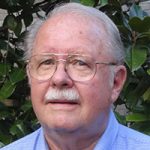
James J. Smolen, PhD
James J. Smolen, Ph.D. has over thirty years experience in cased hole well logging, applications, related research, and training. He began in the oil industry (1970) with Schlumberger and since 1980 has been an officer and director of Petroleum Computing, Inc., and an international consultant and trainer of cased hole logging. Dr. Smolen has numerous publications to his credit, including the 1996 PennWell text, Cased Hole and Production Log Evaluation. He was a Distinguished Lecturer for both the SPE and the SPWLA. Dr. Smolen holds a B.S. from Northwestern University and M.S. and Ph.D. degrees from the University of California, Berkeley.
Dr. Smolen teaches the following courses:
Stephen A. Sonnenberg, PhD
Dr. Steve Sonnenberg is a Professor and holds the Charles Boettcher Distinguished Chair in Petroleum Geology at the Colorado School of Mines. He specializes in unconventional reservoirs, sequence stratigraphy, tectonic influence on sedimentation, and petroleum geology. A native of Billings, Montana, Sonnenberg received BS and MS degrees in geology from Texas A&M University and a PhD degree in geology from the Colorado School of Mines. He has over twenty-five years experience in the industry.
Steve has served as President of several organizations including the American Association of Petroleum Geologists, Rocky Mountain Association of Geologists, and Colorado Scientific Society. He also served on the Colorado Oil and Gas Conservation Commission from 1997-2003 and was the Chair of the Commission from 1999-2003. He is the recipient of the Young Alumnus Award, Outstanding Alumnus Award, and Mines Medal from the Colorado School of Mines, Distinguished Achievement Medal from Texas A&M University, distinguished service awards from AAPG and RMAG, and honorary membership awards from AAPG, RMAG and the Colorado Scientific Society. In 2013, he was awarded the Halbouty Medal from AAPG.
Dr. Sonnenberg teaches the following courses:
W. Lansing Taylor, PhD
For the past seventeen years, Dr. W. Lansing Taylor has been an accomplished structural geologist with extensive industry and field experience specializing in Structural Geology, Fractured Reservoirs, Geomechanics and Field Geology. Dr. Taylor joined SCA as an instructor in 2008. His Structural Styles in Petroleum E&P short course and the accompanying Structural & Sequence Stratigraphy Field Course (Hill Country, TX) are consistently rated at the top of the scale among our students. His development and EOR experience includes Hugoton, Golden Trend, Permian Basin, Ozona, and the Austin Chalk, while his exploration experience includes Alaska, North Africa, Middle East, and SE Asia.
Dr. Taylor is currently working as a Sr. Structural Geologist with Talisman Energy and previously performed both technical and management roles with Anadarko Petroleum. His most recent experience with Talisman includes structural evaluation, providing in-house training, implementing new technology, interfacing with academic research and structural consortia, petroleum system analysis, and risk assessment from basin to wellbore scale. While at Anadarko he worked as a project advisor and fractured reservoir specialist aiding exploration and development teams in solving issues related to structural geology.
His accomplishments include three discovery wells on the Gulf Coast, one in Alaska, and a new basin entry for Anadarko in Indonesia. Following the merger with Kerr McGee, he managed the evaluation of their mid-continent and west Texas fields, and made all G&G presentations for the subsequent divestiture of assets (proceeds ~$2 Billion). Dr. Taylor received his B.A. in mathematics and geology at Skidmore College, receiving department honors of Suma Cum Laude. He received his Ph.D. in Quantitative Structural Geology, “Fluid flow and chemical alteration in fractured sandstone”, Department of Geological and Environment Sciences from Stanford University.
Dr. Taylor teaches the following courses:

Molly Turko, PhD
Dr. Molly Turko has over 13 years of experience in the oil and gas industry and is a subject matter expert in structural geology. She has had the opportunity to work in multiple basins in the U.S including the Anadarko, Ardmore, Delaware, Powder River, Appalachian, Onshore Gulf Coast, and Rocky Mountain Basins. She received both a B.Sc. (2009) and a M.Sc. (2011) in geology from the University of Tulsa followed by a Ph.D. (2019) from the University of Oklahoma where she studied under Dr. Shankar Mitra.
Her work experience includes Chesapeake Energy, Devon, and several small operators in Tulsa. She has taught courses for R.M.A.G., AAPG, Applied Stratigraphix, and for the Ore Geology Conference. She is also the Vice President of AAPG’s Petroleum Structure and Geomechanics Division for 2021-2023.
Molly’s passion is mentoring and teaching, but her favorite role is leading structural geology field courses in Nevada and Southern Oklahoma. She is currently a team member of Applied Stratigraphix as their Structural Geology Expert along with consulting for Turko Tectonics and Structural Geology.
Dr. Turko teaches the following course:
Julia Smith Wellner, PhD
Julia Smith Wellner is a marine geologist at the University of Houston. Julia received her bachelor’s degree from Bryn Mawr College, her master’s degree from the University of Alabama, and her Ph.D. from Rice University in 2001. Following her graduation from Rice, she worked for five years as a post-doctoral fellow and lecturer in the Department of Earth Science there. She is now Research Assistant Professor in the Department of Earth and Atmospheric Sciences and Co-Director of the Geoscience Learning Center at the University of Houston. Her primary research interest is in Antarctic glacial history and marine geology and she has completed six field seasons offshore Antarctica on the icebreaker RV/IB Nathaniel Palmer. She also works in the Gulf of Mexico and Texas coast on projects related to coastal change and sediment budgets.
Dr. Wellner teaches the following course:
James J. Willis, PhD
James J. Willis received his B.S. and M.S. degrees from the now University of Louisiana in 1989 and 1990, respectively, and his Ph.D. as a National Science Foundation fellow at Baylor University in 1993. From 1994-1996, he studied Planetary Geology as a NASA-funded postdoctoral fellow at Southern Methodist University. In 1996, he returned to UL, where he was awarded in 1997 the Hensarling-Chapman Endowed Professorship in Geology. In 2001, he left academia for industry consulting and teaching.
James has been the Editor and Publisher for the Lafayette Geological Society since 2002, and the Co-Editor/Managing Editor and Publisher for the Gulf Coast Association of Geological Societies since 2006. He’s received many grants and contracts, presented numerous talks, and published various papers on a diversity of geoscience topics. As an undergraduate, he developed a 4D quantitative well bore guidance theory, including the concept of positive versus negative thickness (sign indicating direction of drilling section), that predated availability of key real-time data—as an independent consultant and trainer for Baker Hughes for the last few years, it’s been particularly exciting to see just how far the reality of LWD technology has since advanced.
Dr. Willis teaches the following courses:
- Applied Seismic Interpretation Workshop
- Applied Sequence Stratigraphy of Clastic Depositional Systems
- AVO, Inversion and Attributes: Principles and Applications
- Basic Petroleum Geology
- Dipmeter and Image Log Applications and Interpretation
- Foundation of Petrophysics
- Integration of Rock, Log, Test and Seismic Data
- Introduction to Petroleum Geology
- Practical Seismic Exploration and Development
- Seismic Data (2D/3D/4D Interpretation)
- Well Log Interpretation
Lesli J. Wood, PhD
Dr. Wood joined the faculty at Colorado School of Mines in January 2015 as a Professor and the Robert Weimer Endowed Chair in Sedimentary and Petroleum Geology, where she is director of the Sedimentary Analogs Database and Research Program (SAnD). Prior to joining CSM, Dr. Wood held positions at the University of Texas at Austin, Amoco Production Company and Arco. She received her doctorate in 1992 from Colorado State University following her MS work at the University of Arkansas. Dr. Wood specializes in quantitative seismic geomorphology of clastic basins, structural and sedimentary system interactions, submarine mass failures, petroleum geology, mobile shales and geomorphology of Mars. She has served as SEPM Society for Sedimentary Geology national Secretary-Treasurer, the GCSSEPM President and is active in the Geological Society of America, the American Association of Petroleum Geologists and the Geological Society of Trinidad and Tobago. She also served as a member of the Ultra-Deepwater Advisory Committee for the U.S. Secretary of the Department of Energy and sits on the RPSEA Board of Directors and the RPSEA GECO2 advisory board. She serves as an Associate Editor at Geosphere and Interpretation. Dr. Wood has published widely on the nature of modern and ancient deep- to shallow-water systems around the world and has won numerous best paper and poster awards, including AAPG’s Sproule Award, and most recently the 2014 EAGE Norman Falcon Award as co-author of the Best Paper in Petroleum Geosciences. She, her wife and her pig are very pleased to be relocated back to the Rocky Mountains after 23 years in Texas.
Dr. Wood teaches the following courses:


